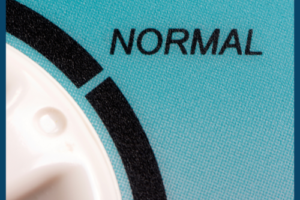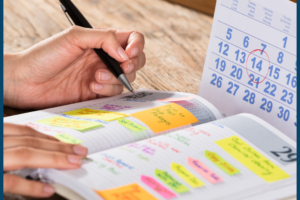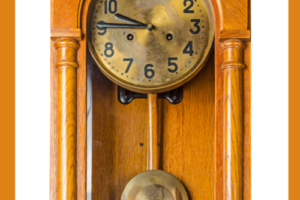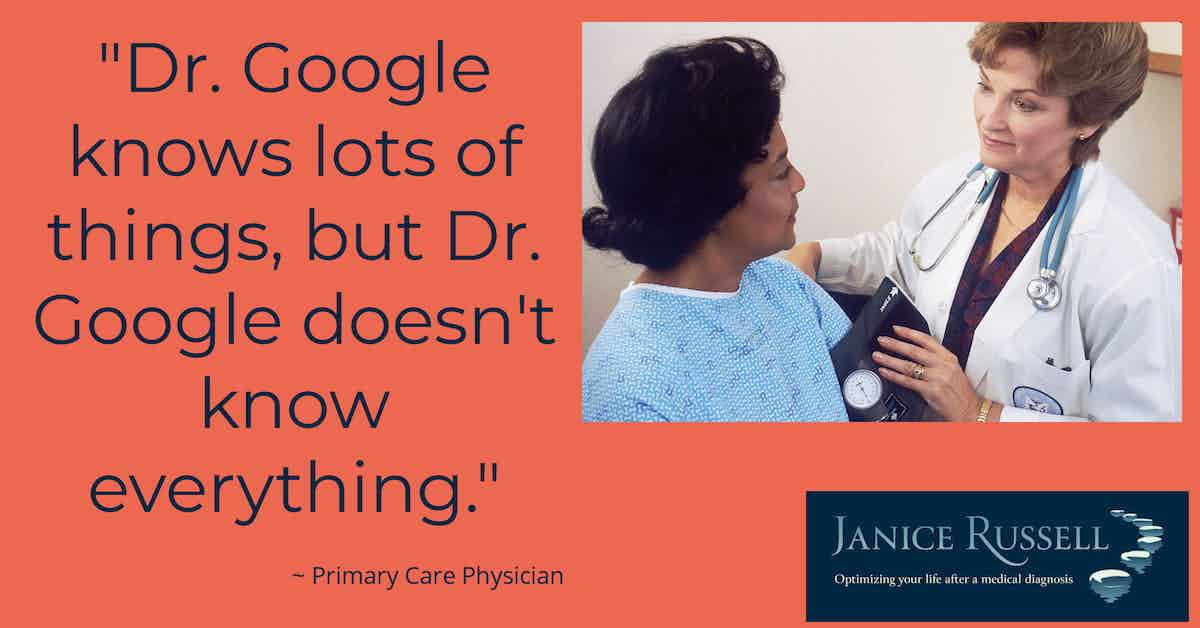
The Importance of Self-Advocacy When Managing Your Health
A Knee is an Injury Waiting to Happen
This title of a newspaper article in the early 1980’s, caught my eye because I had problems with my right knee at the time. In fact, this was when I started learning how to advocate for my physical health.
Little did I know how well that would serve me over the years!
Fast forward to summer, 2022. I’d had three minor surgeries and a total joint replacement on my right knee, when my left knee started bothering me a little.
I could have attributed the discomfort to aging, taken over-the-counter (OTC) pain relief, and continued life as usual. However, I decided that it was prudent to schedule an appointment with my orthopedist to get baseline information.
I don’t know about other countries, but in the U.S. many are taught to “push through” health concerns – whether related to physical or mental health. We don’t have time to “be sick” OR we can’t get a timely appointment with a doctor OR it’s too expensive.
We often go with magical thinking: “If I just wait, the pain will go away.”
Alternatively, we check the internet. However, I’ll reiterate what my Mom’s primary care once said, “Dr. Google knows lots of things, but Dr. Google doesn’t know everything.”
While sometimes the problem can be managed with western or Eastern do-it-yourself (DIY) remedies, other times it’s best to schedule time with a trained professional.
I was happy that in summer, 2022, my orthopedist said the arthritis in my left knee hadn’t progressed since the x-rays taken in 2017. I asked for a range of time in which I might need a knee replacement. Response: five-to-ten years. I knew the answer was based on current information and might change, but at least I had an idea.
Imagine my surprise when the worst stabbing sensation that I’d ever felt in either knee started in the left one in early December, 2022! I could have waited to see if it was temporary, but since it was unlike anything I’d ever experienced, I immediately made a doctor’s appointment.
While I had to shift items in my calendar, I knew that the pain had already caused me to use a cane and to walk extremely slowly, so I was willing to make those changes before things possibly got worse.
Diagnosis: acute arthritic flair-up. I chose to get a cortisone shot because of travel planned for April, 2023. Getting the shot in December would enable me to get another one prior to the trip if necessary.
You may be wondering, “What does this have to do with me, Janice?”
I found it common for people to ignore their physical and mental health. Above I mentioned that in the U.S. it’s not uncommon for people to postpone their care. It could be a specific issue or it might be preventative testing (you all know which ones I’m talking about😊).
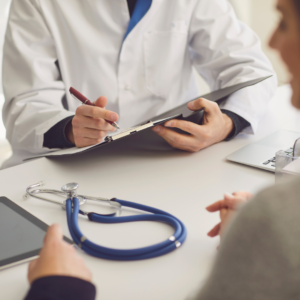
Here are a few strategies that have helped me when I’m questioning whether or not to seek professional care:
DON’T
- Say “I haven’t had a problem in the past.” During the first few years I lived in Maryland, I got cold symptoms that seemed to hang on for a long time each fall and spring. A friend mentioned that it might be allergies. Since I’d lived in North Carolina, Massachusetts, and Tennessee without any issues, I said that couldn’t be the case. After three years I decided to get it checked out. Sure enough I had allergies. Allergy shots took care of the problem. I wish I’d gone to the doctor sooner!
- Think “It’s nothing”or “It’ll pass.” While it could be true, it’s also possible that waiting will only exacerbate the problem. To loosely quote a popular pun: “Denial is not just a river in Egypt.”
- Let fear deter you from seeking help. It’s easy for our brains to go into all the awful scenarios: a lump is Stage 3 cancer or feeling extremely anxious means needing to check in to a mental hospital. While those are possible, it’s also reasonable that the lump is a benign growth and the anxiety can be managed through self-care and/or medication.
DO
- Listen to concerned friends. In early 2001, I knew something wasn’t right. There many times I just wanted to crawl under my desk at work and not interact with anyone. I also had many days when I had absolutely no interest in eating. A small group of friends met told me that they’d noticed that I hadn’t seemed like myself for quite awhile and urged me to seek help. When I finally did, I was diagnosed with clinical depression and started on medication. It made a huge difference in my life!
- Share concerns with a trusted confidant. This may or may not be difficult for you. I know it’s hard for me. At the same time, it can be comforting to talk with someone who will just listen. You could be looking for someone to give input. Regardless, sometimes it’s just helpful to share what’s going on.
- Choose the best providers and treatments for you. I realize that this can be difficult depending on your health insurance – which may have some shortcomings. However, with some research, it is possible to find a solution. Here are a few keys:
- Ask questions!
- Determine how and where you’ll record information: research, notes, questions, options, etc.
- Get a second opinion.
- Explore all options with which you feel comfortable. In addition to pursuing western medicine, I’m a proponent of trying Eastern medicine as long as there aren’t known negative side-effects. I’ve had acupuncture which has been helpful for the conditions for which I used it. It may be possible to find a doctor versed in a holistic approach to health.
- Ask questions! (Yes, it’s that important!)
I’d love to know if you have another do or don’t to add. Please share below.

